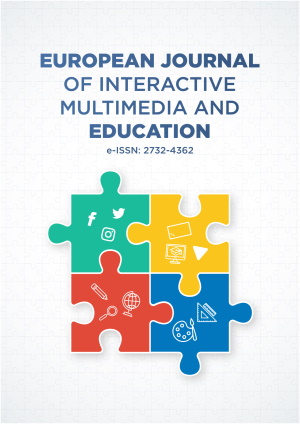Keyword: E-learning
5 articles found.
Research Article
Adoption and utilization of e-learning for learning in select tertiary institutions in Kogi State
EUR J INTERACT MULTIMED ED, Volume 7, Issue 1, 2026, Article No: e02602
https://doi.org/10.29333/ejimed/17950Research Article
Online Teaching and Learning Under COVID-19 Pandemic; Perception of University Students in Ghana
EUR J INTERACT MULTIMED ED, Volume 3, Issue 1, January 2022, Article No: e02203
https://doi.org/10.30935/ejimed/11438Research Article
Teachers at Lock-Down: Generalized Anxiety Disorder and Attitude Towards E-Learning amidst COVID-19 Era
EUR J INTERACT MULTIMED ED, Volume 2, Issue 2, July 2021, Article No: e02113
https://doi.org/10.30935/ejimed/11288Research Article
E-Learning Platform: A Sustainable Approach for Students’ Learning during and after Coronavirus Pandemic in Oyo State Secondary Schools, Oyo State, Nigeria
EUR J INTERACT MULTIMED ED, Volume 2, Issue 1, January 2021, Article No: e02103
https://doi.org/10.30935/ejimed/9361Research Article
Blended, Distance, Electronic and Virtual-Learning for the New Normal of Mathematics Education: A Senior High School Student’s Perception
EUR J INTERACT MULTIMED ED, Volume 1, Issue 1, January 2020, Article No: e02001
https://doi.org/10.30935/ejimed/8276
